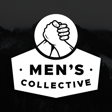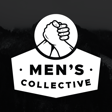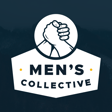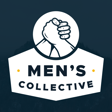
Healing Through Fatherhood: Trauma, Redemption, and Prioritizing Family (feat. Daniel Grose)
Welcome to another powerful episode of The Integrated Man Project. Today, we're diving deep into the heart of fatherhood with our special guest, Daniel Grose. Daniel shares his transformative journey of prioritizing family over career ambitions, shedding light on the sacrifices and growth required to foster genuine connections. Joined by our host, Travis Goodman, they explore the toxic cycle of finding worth through productivity, as discussed in Brene Brown’s "Daring Greatly," and the relentless pursuit of success ingrained in our culture.
The episode takes an emotional turn as Daniel opens up about his traumatic upbringing, from his biological father's addiction and criminal activities to the struggles of his stepfather with drug addiction and bipolar disorder. These harrowing experiences shaped Daniel’s approach to marriage and fatherhood, leading him to make significant life changes to heal and prioritize his family.
HIGHLIGHTS:
1. Prioritizing Family Over Career Ambitions: In today's episode, Daniel discusses his tough decision to leave his previous business venture to focus on his family. An impactful move, emphasizing the importance of being present at home rather than succumbing to the endless pursuit of career success.
2. Unhealed Trauma and Growth: Daniel opens up about his past trauma, including his biological and stepfathers' battles with addiction, and how these experiences have shaped his approach to marriage and fatherhood. This heartfelt conversation delves into healing and growth for the betterment of future generations.
3. Practical Changes for a Balanced Life: Highlighting practical steps, Daniel shares how he made significant changes in his career, like selling part of his business and transitioning to a 40-hour workweek, to prioritize his family's well-being and manage his own self-care.
As we navigate through life's various roles, here's a reflective question for our listeners: **What practical steps can you take today to ensure you are prioritizing your family's well-being without sacrificing your mental health and self-worth?**
Join us as we uncover the importance of vulnerability, emotional intelligence, and the quest for positive change in fatherhood. This episode is a testament to the resilience of the human spirit and the enduring impact of family, love, and the courage to embrace growth.
JOIN THE MAILING LIST & GET INVOLVED!
WATCH ON YOUTUBE:
Connect and Support Daniel:
Instagram: @honest_fatherhood
Connect and Support Travis:
YouTube: Travis Goodman
Instagram: @integratedmanproject
Check out the Website: TBD





